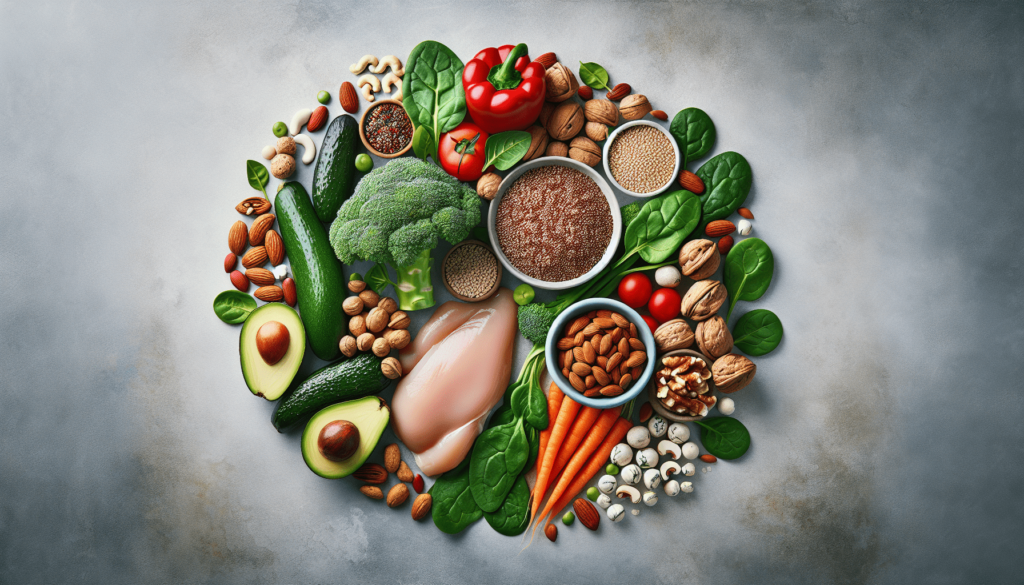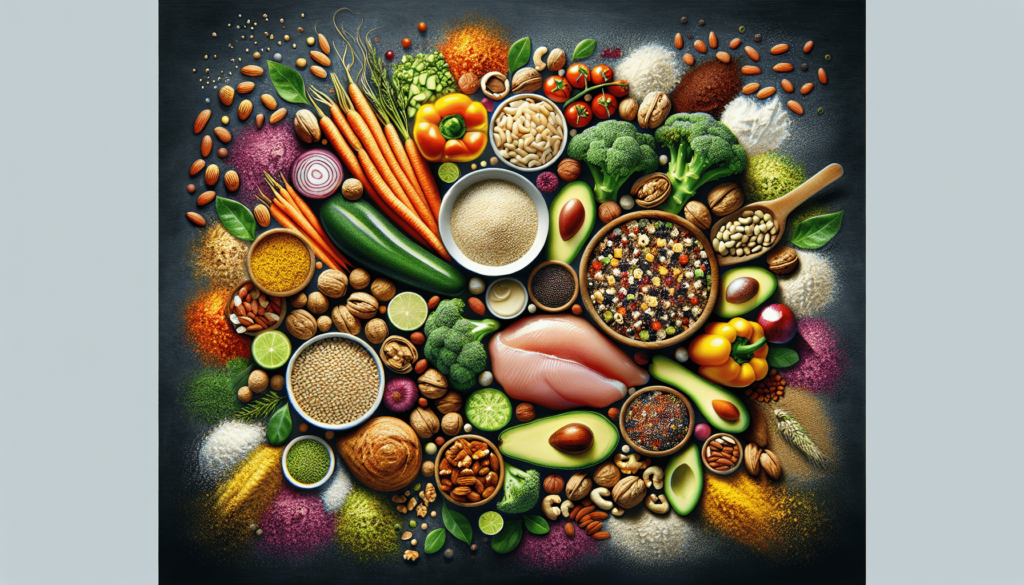Have you ever found yourself staring at a donut and wondering why your body seems to demand a rendezvous with it, while your brain screams “Kale!”? If so, you’re not alone. This fascination—and occasional love affair—with food can be blamed on macronutrients, the mysterious trio of carbohydrates, proteins, and fats that dictate your body’s whims and fancies.
Macronutrients aren’t just the buzzkill term your gym trainer throws around like confetti; they’re essential for your existence and not just the waistline-anxiety-inducing fear factor they’re often made out to be. Let’s break it down, have a chuckle (or perhaps a chortle), and explore the importance of these enigmatic components in your diet. In less time than it takes to eat that aforementioned donut, you’ll have a better understanding of what macronutrients are and why they matter. No kale required—unless, of course, you want it to be.

What Are Macronutrients?
Before getting into the nitty-gritty of why they’re important, it’s only fair we define what we’re on about. You see, macronutrients are not an exclusive club reserved for food scientists and dietitians. They are simply the nutrients that your body needs in large quantities (hence the prefix “macro”), and they provide energy for you to do everything from winking conspiratorially at strangers to running from your problems—literally or metaphorically.
The Terrific Trio
Your diet is essentially a balancing act of carbohydrates, proteins, and fats. Think of them as the Three Musketeers of nutrition, each with its own role but ultimately fighting the same battle against fatigue, malnutrition, and perhaps even that late-night pint of ice cream.
Carbohydrates: The Quirky Best Friend
Carbohydrates are like that quirky best friend who always lifts you up—literally. They’re the primary energy source for your body, best friends with your brain, and fuel the muscles you need to carry out everyday activities, including your daily complaint session with Susan from accounting. Carbs can be simple sugars or complex starches; think of them as short stories versus epic trilogies. Despite the bad press they’ve received recently, they’re quite the energy powerhouse when part of a balanced diet.
Proteins: The Body Builder
Proteins are your body’s construction crew. They’re responsible for building, repairing, and maintaining your body tissues, like tiny masons constantly mortar-ing and brick-laying cells, ensuring everything is in tip-top shape. Without them, you’d be more like a post-apocalyptic shack than a full-fledged human being. They also double as an energy source if you’re in a pinch, but they’d really prefer to stick to house renovations.
Fats: The Misunderstood One
Ah, fats. The media’s favorite villain that’s actually a bit of a hero, if you ask me. Fats provide structure to cell membranes, aid in the absorption of vitamins like A, D, E, and K (imagine vitamins hitching a ride on a monorail), and act as a long-term energy storage unit. Without them, you’re essentially Batman without utility—energy utility, at least. Yes, you need to consume them in modest quantities, but they’re essential. Plus, they’re responsible for making food taste like heaven.
Why Are Macronutrients Important?
So why the big fuss over these macronutrients then? Simply put, without them, your body would resemble a car stranded without petrol (or as Americans say, gas). Let’s break it down a bit more, just in case you need more encouragement to reach for that balanced snack instead of pocket lint.
Energy is Essential
Without energy, you’d be as useless as a chocolate teapot. Your body needs macronutrients to undertake virtually every action, from involuntarily blinking to voluntarily snoozing the alarm clock several times. Carbohydrates play a major role in supplying this energy, alongside any proteins or fats that intervene when carbs take a nap.
Growth and Maintenance
Proteins are vital, akin to indispensable car parts that keep a vehicle running smoothly. They ensure growth, maintenance, and repair of numerous body tissues, enabling you to play catch mercifully well or even just flex those biceps in front of a mirror for personal satisfaction. Protein is integral not only for maintaining structural integrity but also for bodily function, including enzyme and hormone production.
Metabolism on Fleek
Your friendly neighborhood fat cell ensures that metabolism functions smoothly by performing crucial roles, from nutrient absorption to insulation. The fats you consume undergo a transformation in metabolism, a bit like a caterpillar becoming a butterfly, except with less fanfare. Still, it’s an essential process for maintaining your body’s equilibrium—and you know, keeping warm in the winter months.
Nutrient Delivery & Absorption
Think of fats as the delivery drivers of the nutrient world. They help you absorb fat-soluble vitamins and deliver them to where they’re needed, which is kind of important for everything from good eyesight to bone health. Make no mistake, without fats, your body wouldn’t be able to utilize these vitamins as efficiently as a caffeine-fueled express train.
Happier You, Happier Gut
Macronutrient balance has a part to play in gut health. Carbs such as fiber aid digestion, fats promote the production of important gut hormones, and proteins help maintain the gut lining. It’s a gastrointestinal jamboree powered by the mighty macronutrients.
Balancing Your Macronutrient Intake
Much like choosing which shoes to wear to impress your crush, balancing macronutrient intake is essential for optimal health. An excess or dearth of any of these can turn your body into an opera of complaints you really didn’t want to hear.
The 60-20-20 Rule?
Are you wondering how many carbs, proteins, and fats you need to eat daily? While each person’s dietary needs can be as unique as a fingerprint, a general guideline is to aim for about 50-60% of daily calories from carbohydrates, 10-20% from proteins, and offload the remaining to fats. If only eating were as simple as committing a pie chart to memory!
| Macronutrient | Percentage of Daily Calories* |
|---|---|
| Carbohydrates | 50-60% |
| Proteins | 10-20% |
| Fats | 20-30% |
*Ensure these percentages are aligned with specific dietary needs.
Remember the Context
The dietary needs change based on your personal context. Are you an Olympic-level couch potato or an enthusiastic hobbyist marathon runner? Your lifestyle, genetic predispositions, age, and even where you are on the Kardashian Konundrum all impact macronutrient needs. Consulting a nutritionist or dietitian can make the dance of dietary calculations a bit simpler and infinitely less chaotic than a mosh pit.
Watch Out for Them Empty Calories!
Empty calories are sinister brothers of macronutrients. They loiter around in sugary drinks, overly processed foods, and sometimes sneak into your life disguised as delicious jack-in-the-boxes. While they can bring ephemeral joy to your palate, unlike actual macronutrients, they contribute little nutritional value. It’s like a sandwich with no filling, or a ship with no captain—less dramatic, more annoying.
Conclusion: The Triumph of Macronutrients
In closing, while the seductive allure of fad diets and kale-laden regimes may tug at your already linguini-like heartstrings, remind yourself of the macronutrient trifecta. Each of them works tirelessly in a synergy more harmonious than a barbershop quartet (and about a million times more necessary), ensuring you remain in the best shape, mentally, physically, and even socially, if you decide to make them integral to your bodily orchestra.
So, as you stare down at your next meal, remember this: each ingredient plays its own role in contributing to your well-being, your energy, and yes, even your wit. So relish your balanced diet, whether it’s the artfully prepared salmon filet or the humble but mighty peanut butter sandwich. And if you’re ever in doubt, know that a balanced diet filled with proper macronutrients is like a great story arc; it starts with a problem, holds a middle ground, and ends gloriously without any cliffhangers—a happily ever after in edible form.

